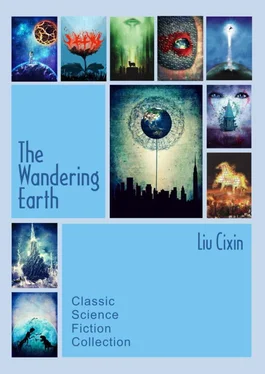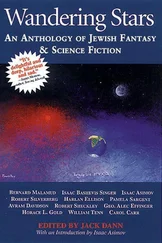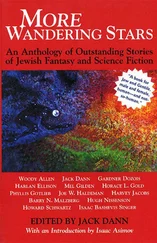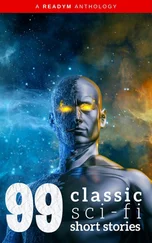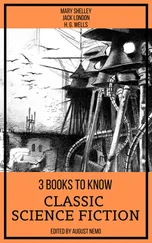Liu Cixin
THE WANDERING EARTH
CLASSIC SCIENCE FICTION COLLECTION
Translator: Holger Nahm
Editor: Kim Fout, Verbena C.W.
CHAPTER 1
The Reining Age
I’ve never seen the night, nor seen a star; I’ve seen neither spring, nor fall, nor winter. I was born at the end of the Reining Age, just as the Earth’s rotation was coming to a final halt.
The Reining lasted for 42 years, three years longer than the Unity Government had projected. My mother once told me about the time our family witnessed the last sunset. The Sun had ever so slowly crept toward the horizon, almost as if it had stopped moving altogether. In the end, it took three days and three nights to finally set. Naturally, that was the end of all “days” and all “nights”. The Eastern Hemisphere was shrouded in perpetual twilight for a long time then, perhaps for a dozen years or so◦— with the Sun hiding just beyond the horizon◦— its rays reflected by half of the sky. It was during that long sunset that I was born.
Dusk did not mean darkness. The Northern Hemisphere was brightly illuminated by the Earth Engines. These giant generators had been raised all across Asia and North America; only the solid and stout tectonic plates beneath those two continents could withstand the enormous thrust forces they exerted. There were about 12,000 Earth Engines built and distributed across the Asian and American plains.
From my home I could see the bright plasma plumes of several hundred Earth Engines. Just imagine a gigantic palace, one as large as the Parthenon on the Acropolis. Now imagine countless colossal pillars raising from that palace, reaching to the heavens, each emitting brilliant, bluish-white light like a titanic fluorescent tube. And then there is you; you are a microbe on the palace’s floor. This only begins to paint the picture of the world we lived in.
This picture, however, is not yet complete. Only the forces acting tangentially to the Earth’s rotation could slow it, so the Earth Engines’ jets had to be aligned to a specific angle. Those gigantic pillars of light were slanted to that angle. Now imagine what that meant for our palace, with its pillars all leaning on the very verge of toppling down! Many who came from the Southern Hemisphere went mad when suddenly confronted with this awesome vista.
Worse than the view was the scorching heat emitted by the Earth Engines. Outdoors the temperature was stuck at around 160 to 180 degrees, forcing us to wear thermal suits just to leave the house. The extreme, nearly suffocating temperatures often brought torrential rains. It was always a nightmarish scene when the beam of an Earth Engine cut through dark clouds. The clouds scattered the brilliant, bluish-white light of the beam, erupting it into countless frenzied, surging halos of rainbow light that covered the entire sky like white-hot magma. One time my senile grandfather◦— tormented by the unrelenting heat◦— couldn’t take it anymore; when a heavy downpour arrived, he was so elated that he ran outside, bare to the waist. We couldn’t stop him in time and the top of his skin was scalded off by the raindrops which were heated to a boil by the Earth Engines’ plasma beams.
To my generation, born in the Northern Hemisphere, all of this was perfectly normal and natural, just like the Sun, stars and Moon had been to generations before the Reining Age. We called the entire history of the human race that had come before us the Pre-Solar Age; what an enthralling and golden era that had truly been!
When I started primary school, my curriculum included a journey around the world. I went on this journey with my teachers and a class of thirty. At the time, the Earth’s rotation had already come to a complete halt. The Earth Engines were only being used to maintain the planet’s equilibrium and to make a few minor adjustments. Because of this, the beams were significantly throttled during the three years from when I was three until I turned six. It was due to this throttling that we were able to take our trip, giving us a chance to get to know our world better.
First, we visited an Earth Engine up close. The engine was in Shijiazhuang, near the foot of the Taihang Mountains. The engine was a towering metallic mountain, looming over us, filling half the sky. To the west of it the Taihang Mountains seemed to be no more than a ridge of small hills. Some of us children exclaimed in wonder that it must be as tall as Mount Everest. Our beautiful teacher, Ms. Xing, smiled as she told us that it was in fact 36,000 feet tall, a good 6,000 feet taller than Mount Everest.
“People call it ‘God’s Blowtorch’,” she said.
We stood in its enormous shadow, feeling its tremors shake the very Earth.
There were two major types of Earth Engines. The larger ones were dubbed “Mountains”, while the smaller ones were called “Summits”. We ascended North China Mountain 794. Let me tell you, it took a lot longer to scale a “Mountain” than to ascend a “Summit”. The top of a Summit could be reached via a giant elevator, while you could only go up a Mountain in a car, snaking your way up a coiled road. Our bus weaved into the endless procession of other vehicles, following the smooth steel road up the outer side of the Mountain. To our left, there was only a blank face of azure metal; to our right, a yawning abyss.
The traffic mostly consisted of 50-ton dump trucks, fully loaded with rocks from the Taihang Mountains. Our bus quickly ascended to 16,000 feet as the Earth below almost completely disappeared, obscured by the reflection of the Earth Engine’s greenish blue light. Ms. Xing then told us to put on our oxygen masks. As we approached the plasma plume, the light and heat increased immensely, causing the visors we wore to gradually dim and the mini-compressors in our thermal suits to whir along with all their might. At 20,000 feet we came upon the material intake. Truckload after truckload of large rocks was dumped into the faint, red sparkling light of its giant maw. It devoured the rocks without sound.
Fascinated, I asked my teacher about it. “How is the Earth Engine able to turn those rocks into fuel?”
“Heavy element fusion is a very arcane field of study,” she told me, “too difficult to understand at your age. You can content yourself to understand that the Earth Engines are the most powerful machines mankind has ever built. The one we are standing on, North China 794, operating at full power has the capability of exerting 15 billion tons of thrust on the Earth.”
Finally, our bus reached the very top of the engine. Here the mouth of the plasma jet was directly above us. The beam emanating from it was so enormous that, when we tilted our heads up, all we could see was a gargantuan wall of blue plasma reaching into infinity above us. Looking far up at that blue, I then recalled a riddle posed to us in philosophy class:
“You are walking along on a plain when you suddenly come across a wall,” I told my teacher. “It stretches endlessly upward, endlessly downward, endlessly to your left and endlessly to your right. What is this wall?” Our haggard teacher had asked our class that riddle. I now asked Ms. Xing, curious at her answer. Even the memory of that question made me shudder as we stood atop the engine.
Ms. Xing stood next to me, thinking of the answer. After a perplexed moment, she shook her head as she contemplated my query.
Leaning close, I whispered the riddle’s terrible answer into her ear. “Death.”
For a few seconds she stared at me in silence, and then she suddenly embraced me. As she held me tight, I gazed over her shoulder into the distance. Rising from the hazy Earth below, I could see a range of gigantic metal peaks. The range stretched in all directions as far as the eyes could see, each peak shooting forth a beam of bright plasma. It looked just like a gigantic, slanting cosmic forest, puncturing our teetering sky.
Читать дальше
